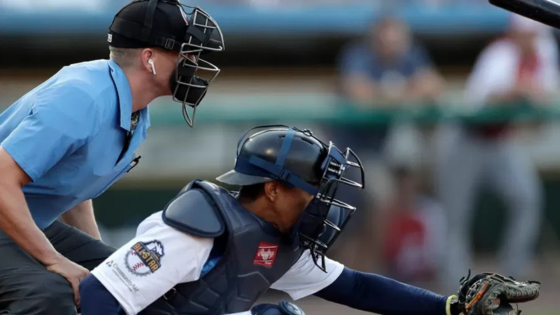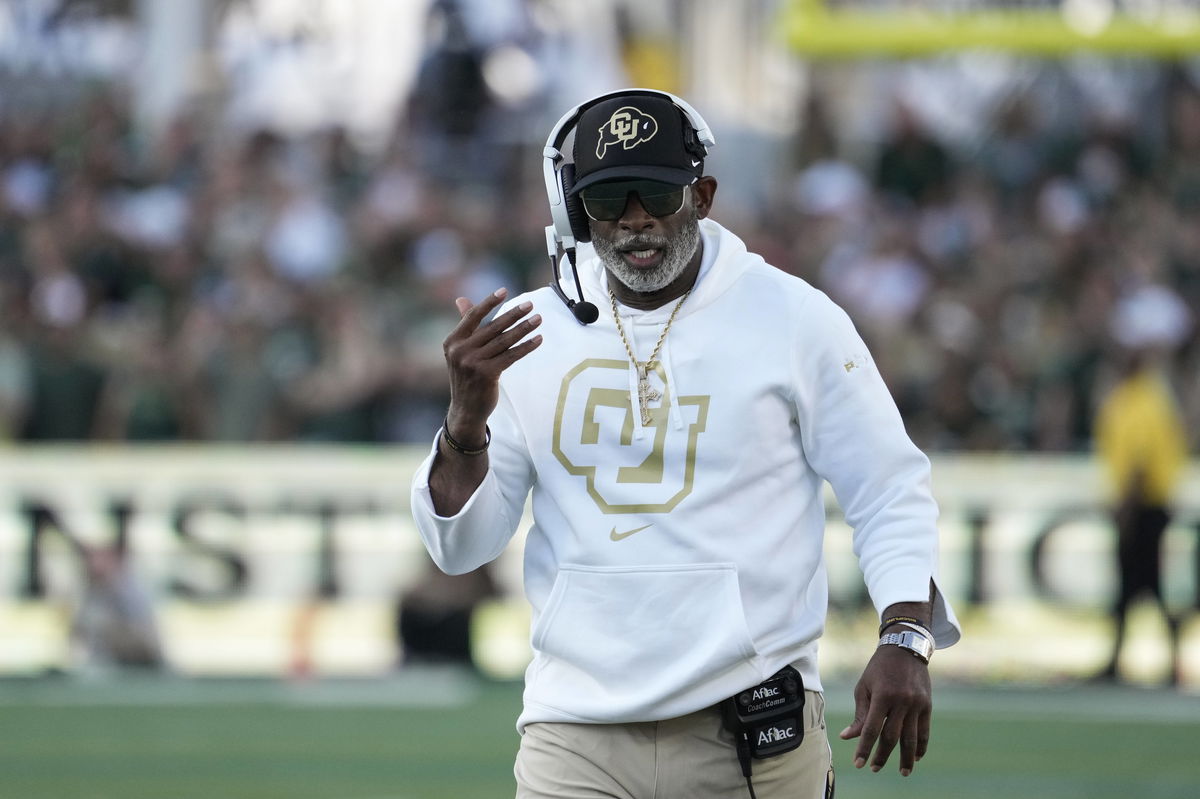In recent times, frustration over inconsistent calls behind the plate has been growing louder than ever. MLB has witnessed a serious surge in controversial umpire calls, which has led to mounting calls for the implementation of the Automated Ball-Strike, aka the ABS system. During spring training of 2025, the system of Robo-umps was tested, yet it’s June now, and the league is still relying upon human judgment, which at many instances has been observed to be compromised.
So naturally, this resulted in heated consequences. Just recently, Taylor Walls was ejected for tapping on his helmet, which he was unintentionally adjusting. However, umpire Nic Lentz perceived it as disrespect toward his calls.
Walls’ ejection was just one of many instances where the controversial calls entirely shifted the dynamic of the game. The last time we heard about the ABS was that it needed some fine-tuning and would be set to be implemented in regular games in 2026. However, it has now come to light that further ABS development has been prompted by feedback from players.
Nightengale: ABS challenge system likely delayed until 2027 after player feedback.
— Underdog MLB (@UnderdogMLB) June 1, 2025
Consequently, MLB has made a major decision regarding the Robot-Umps rollout. According to insider Bob Nightengale, the ABS challenge system will likely be delayed until 2027. It turns out that MLB players are afraid of the robo-umps taking over. But let’s not forget: even if ABS were to be implemented in MLB’s regular games, it would probably be as a challenge system rather than replacing umpires. No one is trying to take the human element out of the game.
But that’s not it. Players are concerned that the ABS will take away the value of a catcher’s skill known as framing. This is when a catcher tries to make a pitch look different from what it is, confusing the umpire into calling it a strike. Now, it will also affect how teams will choose catchers. When framing no longer matters, teams might lean towards finding better hitters instead. It will impact how players attempt to steal bases because catchers will be chosen for different reasons after ABS is implemented.
Oh, hold on, there’s something else too. Apparently, the Hawk-Eye system used to track pitches does not function the same in every stadium. So, it could lead to inconsistent results. However, this is subjective overall. Without the presence of ABS, there is a lot at stake for players.
What MLB players risk by delaying ABS?
If the implementation of robotic umps is pushed beyond 2027, MLB regular games will continue to rely solely on human judgments for calling balls and strikes. Let’s be real: it’s far from flawless.
In the absence of ABS, game outcomes could largely hinge on inconsistent calls. Sure, it’s true that umpires tend to get most late-inning calls accurately. This was even confirmed by MLB’s official data. However, overturn rates on challenge calls drop as the game progresses. It falls from 60% in the first three innings to just 46% in the ninth inning. The ABS challenge system will bring in more safeguards against such late-inning mistakes.
The longer the delay in adopting ABS, the more it will prolong inconsistency and delay accountability. See, if the systems were in place, low-performing umpires would have no option but to improve or be exposed. This is especially true in the cases of recurring errors. It’s mostly the fans who are done with controversial calls. Regular season games are in great need of technical assistance. Its expansion is inevitable, but its internal delay can affect both umpires and players.
Again, the idea here is not to replace the human element completely; it’s to enhance the fairness of the game. ABS has proved itself in spring training environment, and without its presence in regular games, the risk increases in the name of tradition.
The post Player Feedback Triggers Major ABS Development as MLB Takes Huge Decision on Robo-Umpire Rollout: Report appeared first on EssentiallySports.



